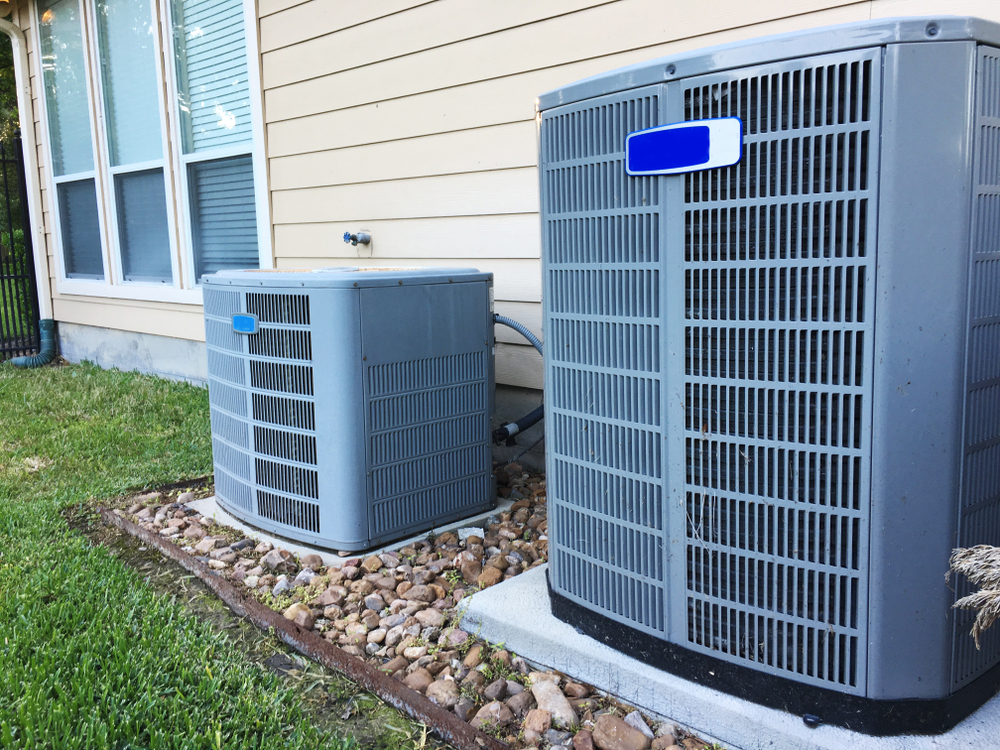As the colder months approach in central New Jersey and southeastern Pennsylvania, keeping your home warm and cozy becomes a priority. However, the cost of heating can quickly escalate if your system isn’t running efficiently.
Today, we’re offering some practical tips to maximize your heating system’s performance, reduce energy bills, and ensure a comfortable winter without breaking the bank. From thermostat settings and insulation improvements to furnace maintenance and optimizing heat pump efficiency, keep reading to learn more.
Optimize Thermostat Settings for Efficiency
One of the simplest ways to save on heating costs is by adjusting your thermostat settings. Keeping your thermostat set to a lower temperature while you’re asleep or away can significantly reduce your energy consumption. Consider installing a programmable thermostat, which can automatically adjust temperatures based on your schedule, ensuring comfort while optimizing energy use.
A recommended setting would be 68°F while you’re home and awake, and programmed to lower by 7-10°F while you’re asleep or out of the house during the day.
Schedule Regular Maintenance for Your Furnace and HVAC System
Regular maintenance of your heating system, whether you have a furnace, boiler, ducted heat pump, or ductless mini split, is essential to ensure it’s running at peak efficiency. This includes steps like:
- Changing your air filter: Cleaning or replacing an air filter filled with dust and debris from ducts improves airflow and system efficiency, not to mention indoor air quality in your home.
- Inspecting all electrical connections: Property tightened connections help reduce the risk of your heating system overheating and improve efficiency.
- Lubricating all moving parts: Unwanted friction can create unwanted noises from your heating system and lead to components breaking.
A well maintained heating system will break down less frequently, operate at its most efficient (saving money), and even extend the lifespan of your equipment, allowing you to squeeze more years of home comfort out of your existing system before it’s time to replace.
Lifespan and Maintenance: Ensuring Your System’s Longevity
Understanding the average life of a furnace or boiler is vital for homeowners. With proper maintenance, systems can last well beyond their expected lifespan.
Typically, HVAC systems last between 15 to 25 years, depending on their maintenance and usage patterns. But no heating system will last forever, no matter how well you look after it, and as your furnace or boiler gets up there in years, you’ll likely find that you have more and more incentive to upgrade to a newer home that’s more efficient, reduces the risk of unexpected breakdowns, and provides ample whole home comfort.
Looking for Even Greater Efficiency? Consider Upgrading to a Heat Pump!
Heat pumps are increasingly recognized as one of the best HVAC options for efficiently heating homes. Even if your existing heating system is working as efficiently as it can, it could still be near the end of its lifespan, and upgrading to a heat pump can help you see a significant change in energy use.
Some of the many benefits of heat pumps include:
- Ultra efficient operation: Heat pumps can be 65% more efficient than traditional electrical baseboard heating systems.
- Run solely on electricity: Electric heat pumps help you reduce your use of fossil fuels.
- Quiet operation: Since part of a heat pump is installed outside of your home, like a central AC, you won’t have to deal with the noise that you might with a furnace or boiler where the entire system is inside. Plus, some of today’s Trane ducted heat pump models are designed to operate at super quiet levels.
- Heating AND cooling in one system: With a heat pump, you can keep your home comfortable all year long with separate modes for heating and cooling.
Upgrade Your Home’s Insulation and Air Sealing
Many homeowners forget that effective insulation and air sealing are crucial for maintaining a warm home and reducing heating costs. These measures prevent warm air from escaping and cold air from entering, minimizing the workload on your heating system.
Key areas in a home to insulate including attics, walls, and floors adjacent to unheated spaces. For air sealing, we often look around windows, doors, outlets and recessed lighting, and anywhere else in your home where there might be gaps or cracks in the building envelope.
Upgrading insulation and sealing leaks can actually extend the average life of your furnace and air conditioner by reducing the need for frequent heating and air conditioner repair.
Save Money While Making Your Home More Comfortable
If you’re considering any upgrades likely to have a major impact on how much energy your heating system uses and how comfortable your home is, you can benefit from incentives like rebates and tax credits to make the project more affordable! There are federal tax credits available for new high efficiency heating system installation, especially heat pumps, as well as insulation and air sealing upgrades. Many of our local utilities also have rebate programs that we participate in—so reach out today to learn exactly how much you stand to save with our team.










